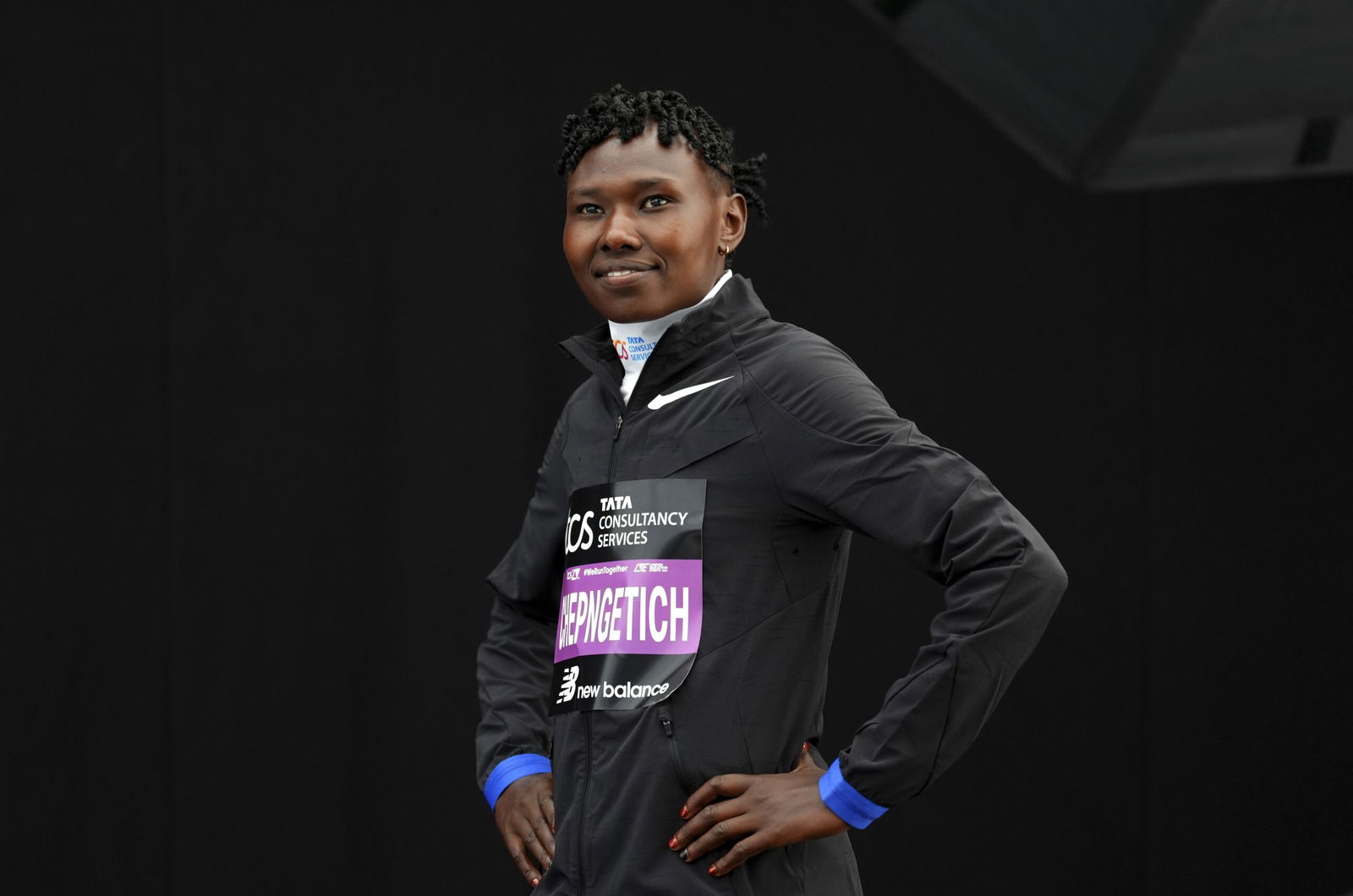Marathon record holder Ruth Chepngetich given three-year ban for doping violation

Kenya's Ruth Chepngetich prepares to race in the 2024 London Marathon.
By George Ramsay, CNN
(CNN) — Women’s marathon world record holder Ruth Chepngetich has been banned for three years after testing positive for a prohibited substance earlier this year, the Athletics Integrity Unit (AIU) announced on Thursday.
Chepngetich tested positive for Hydrochlorothiazide (HCTZ), a diuretic used clinically to treat fluid retention and hypertension, in a sample collected on March 14 and later accepted a provisional suspension.
According to the World Anti-Doping Agency, diuretics like HCTZ can be used to flush previously taken prohibited substances out of an athlete’s system.
The three-year ban, which was reduced from four years after Chepngetich admitted to the doping violation, means that the Kenyan is eligible to compete again in April 2028.
Her results since March 14 have also been disqualified, but her marathon record of two hours, nine minutes and 56 seconds from Chicago last year will still stand.
CNN Sports has contacted Chepngetich’s representatives for comment.
According to the AIU, Chepngetich could not provide an explanation for the positive test when she was first interviewed by investigators on April 16.
She maintained this position – adding that she “had never doped” – during a second interview in July, even after being shown evident from her phone indicating that the positive test “may have been intentional,” the AIU said.
Later that month, Chepngetich wrote to the AIU explaining that she had taken her housemaid’s medication after feeling unwell two days before the positive test, but forgot to disclose this fact to investigators.
However, the AIU stated that this explanation was “hardly credible,” describing it as the sort of “recklessness” that amounts to “indirect intent” and a four-year suspension.
After accepting the sanction within 20 days, Chepngetich’s ban was reduced by a year.
An estimated concentration of 3800ng/ml of HCTZ was found in the positive urine sample from March, exceeding the minimum reporting limit of 20ng/ml.
In early September, Chepngetich wrote to the AIU and said that she had “made a big mistake by taking a medicine and not informing the investigator and the official who were in charge of taking samples,” according to a decision document released by the AIU.
“The case regarding the positive test for HCTZ has been resolved, but the AIU will continue to investigate the suspicious material recovered from Chepng’etich’s phone to determine if any other violations have occurred,” said Brett Clothier, head of the AIU.
AIU chair David Howman, meanwhile, said that this case highlights how “nobody is above the rules” when it comes to doping violations.
The 31-year-old is a three-time Chicago Marathon winner and has a world championships gold medal over the distance from 2019.
She became the first woman to run a marathon in under 2:10 last October, shaving nearly two minutes off the previous record set by Ethiopia’s Tigist Assefa in September 2023.
The-CNN-Wire
™ & © 2025 Cable News Network, Inc., a Warner Bros. Discovery Company. All rights reserved.



